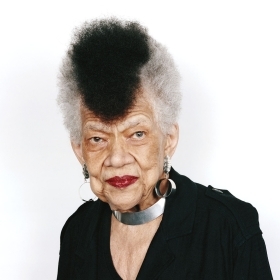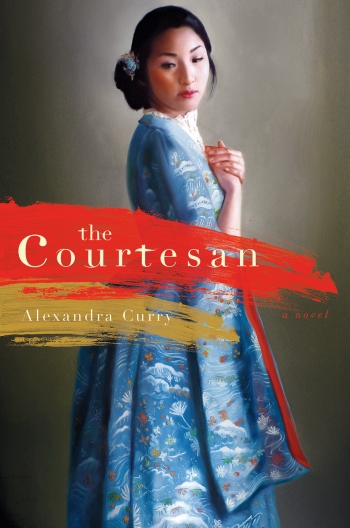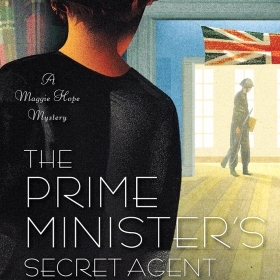In rural China in 1881, a child named Jinhua is sold to a brothel owner in the wake of her mandarin father’s beheading, forcing her into a career as a courtesan. Debut novelist Alexandra Curry’s fictional Jinhua is based on an actual Chinese woman of the same name. Her colorful history is obscured by legend, but she was rumored to be the lover of German aristocrat and military leader Alfred von Waldersee, who led the Western invasion of China during the Boxer Rebellion.
Sai Jinhua is a well-known historical figure in China, but one whose precise details are difficult to pin down, rendering her a ripe subject for reimagining in fiction. The inferable hardships of the real Sai Jinhua’s life are many, and Curry describes the girl’s induction into prostitution in unflinching detail. As the 7-year-old enters the brothel and her feet are gruesomely broken and bound, Curry observes that this mutilation serves the dual purpose of preparing her for life as a prostitute, because small feet are considered alluring, and ensuring that she is not able to run away. Jinhua survives her time as a “money tree” by daydreaming of escape with the housemaid, Suyin, who becomes her closest friend and provides the most poignant relationship in the novel.
As a teenager, Jinhua is taken from the brothel to be a concubine for Wenquig, a local scholar, whose work ultimately moves them to Vienna on a diplomatic assignment. Wenquig is priggish and close-minded, miserable at being sent abroad, and homesick. But Jinhua finds herself increasingly enchanted by the “foreign devils.” Her heady fascination with Europe and fish-out-of-water experiences make for engrossing reading, all the more so for the rich depictions of Vienna at the close of the 19th century. Though warned by Wenquig not to leave their apartment, Jinhua conspires to get free, and slips Roman Holiday-style into the city. It is during this sojourn that she meets von Waldersee, who will eventually lead Western troops into China.
As the unrest between East and West grows, Jinhua’s attachment to European culture leaves her out of step with her homeland, and on the enemy side of a revolution. Curry’s historical insight into China’s relationship with the West is fascinating. There are no tidy endings here, either for the real Sai Jinhua or her fictional counterpart, but Curry has spun her story into a gripping read.
Rodgers, a literary agent with William Morris Endeavor in London, is an avid reader of historical fiction.








We ask that those who engage in Wellesley magazine's online community act with honesty, integrity, and respect. (Remember the honor code, alums?) We reserve the right to remove comments by impersonators or comments that are not civil and relevant to the subject at hand. By posting here, you are permitting Wellesley magazine to edit and republish your comment in all media. Please remember that all posts are public.